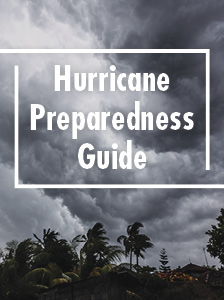When getting your first life insurance policy or renewing your plan, you are faced with a choice: term vs. whole life insurance. Each has its own benefits, but which plan is right for you? It depends on a variety of factors, from your current stage in life, to your age and finances.
We know that thinking about life insurance and how to keep your family protected when you are gone can feel like a heavy decision, but it’s an important one. Life insurance can help your loved ones take care of outstanding debt or continue to pay everyday expenses. It can also be used to pay off a mortgage, cover final expenses and pay for costs towards child care formerly provided by a stay-at-home parent. And since policy rates increase as you get older, the sooner you can get one in place the better.
Let’s delve deeper into the difference between term vs. whole life insurance and which one best fits your needs.
If you’d like to learn more about your life insurance options, schedule an appointment with a AAA insurance agent.
The Basics of Term vs. Whole Life Insurance
Term
As the name implies, this type of plan is temporary, offering a fixed premium that provides coverage for a predetermined period of time. Typically, the longest a term plan will extend is 30 years from the issued date, and if the insured dies before the policy expires, the designated beneficiaries will receive the death benefit. Because it offers a more limited scope of protection, term life insurance policies are often more accessible than whole plans.
Whole
Whole plans tend to be more expensive than term plans and unlike term plans, a whole life insurance policy is a lifelong commitment. Coverage remains active for the policyholder from purchase until death, and accordingly, the benefits are available at anytime. In addition, whole plans have an intrinsic cash value, and policyholders can often borrow money against them.

What to Consider
Deciding between a term vs. whole life insurance policy depends on your situation.
A term life policy may be the best option in cases where the loss of a loved one could have a profound financial impact on family members. It basically serves as income replacement designed to protect your dependents and help them to maintain their lifestyle if you die during the policy period. Also, because term policies are more affordable, they are a good short-term fix until you are ready to upgrade to a whole plan and are easily the best option for those just starting out with life insurance.
Whole life insurance is preferable for planning your inheritance and your estate’s future. When the time comes, this type of plan will be far better suited to cover estate taxes. In addition, if you have a lifelong dependent relying on your income – a child with special needs, for example – a whole policy should be in place to provide financial support, especially if you don’t want to rely on retirement savings or other assets. If you can afford it, the more comprehensive protection offered by a whole plan is the better option to plan for your long-term finances.
Decisions, Decisions
Whether you go with a term or a whole policy, all plans take into account your age, health and financial standing (i.e., debts, expenses and assets). You should also anticipate any expenses that may arise for your beneficiaries in the coming years, such as education and housing. These are all major factors in making any policy decisions, and in the end, the most accurate way to determine which plan fits your budget and your expected needs is to compare the long-term costs of all your options.
To get the best of both worlds, you may want to consider a return of premium policy. This is a term life insurance plan – sold as a 10-, 15-, 20- 25- or 30-year policy, which offers customers the option to get their money back if they outlive the term, or keep the money in an account and have it paid into a whole life insurance policy that you never have to contribute to again as long as you live. So, you get a money-back guarantee along with the protection and advantages of a term policy such as death benefit, lower price and underwriting.
Truth be told, life insurance offers such much flexibility that you have seemingly endless ways to fit a policy into your lifestyle. Oftentimes the best approach for consumers is to start out with term and convert it to a whole policy when the time is right. But before you commit to any plan, consider reaching out to a qualified professional for assistance in assessing your options.
Did this help you to learn more about the difference between term vs. whole life insurance? Tell us in the comments.


















